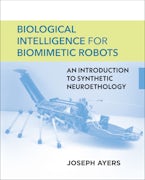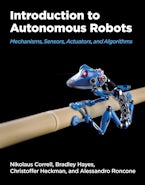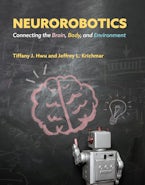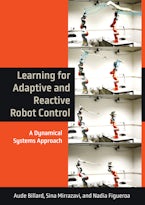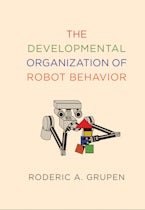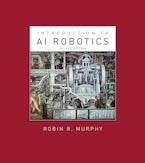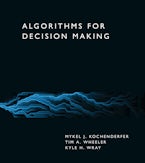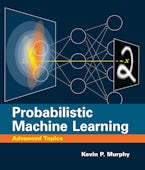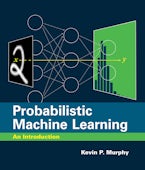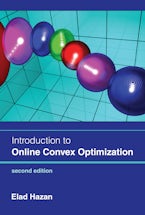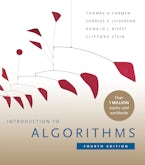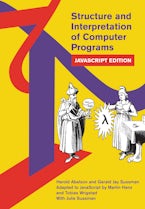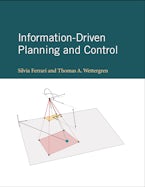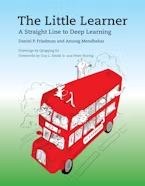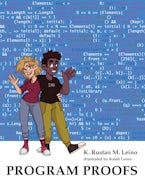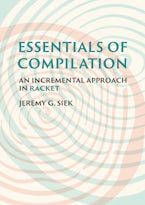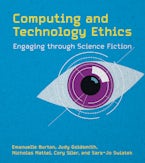The MIT Press @ ICRA 2023
Welcome to our landing page for ICRA 2023. Browse our latest books and journals, and add your name to our newsletter to stay informed about new books, journals, and special promotions.
For textbook desk/exam copies, click the book jacket and then follow the steps.
Biological Intelligence for Biomimetic Robots
June 13, 2023
Introduction to Autonomous Robots
December 20, 2022
November 29, 2022
Learning for Adaptive and Reactive Robot Control
February 1, 2022
The Developmental Organization of Robot Behavior
March 14, 2023
October 1, 2019
Bio-Inspired Artificial Intelligence
April 4, 2023
Multi-Agent Oriented Programming
September 15, 2020
Algorithms for Decision Making
August 16, 2022
Probabilistic Machine Learning
August 15, 2023
Probabilistic Machine Learning
March 1, 2022
Introduction to Online Convex Optimization
September 6, 2022
April 5, 2022
Structure and Interpretation of Computer Programs
April 12, 2022
Information-Driven Planning and Control
July 6, 2021
October 25, 2022
March 28, 2023
February 21, 2023
March 7, 2023
February 21, 2023
Computing and Technology Ethics
February 14, 2023
May 17, 2022
October 19, 2021
September 6, 2022
November 8, 2022
May 24, 2022
March 29, 2022
June 6, 2023
April 19, 2022
November 1, 2022
November 22, 2022
Journals
 Artificial Life, launched in the fall of 1993, has become the unifying forum for the exchange of scientific information on the study of artificial systems that exhibit the behavioral characteristics of natural living systems, through the synthesis or simulation using computational (software), robotic (hardware), and/or physicochemical (wetware) means. Each issue features cutting-edge research on artificial life that advances the state-of-the-art of our knowledge about various aspects of living systems. The journal shapes and chronicles the development of artificial life, extending the horizons of biological research beyond life-as-we-know-it and into the domain of life-as-it-could-be.
Artificial Life, launched in the fall of 1993, has become the unifying forum for the exchange of scientific information on the study of artificial systems that exhibit the behavioral characteristics of natural living systems, through the synthesis or simulation using computational (software), robotic (hardware), and/or physicochemical (wetware) means. Each issue features cutting-edge research on artificial life that advances the state-of-the-art of our knowledge about various aspects of living systems. The journal shapes and chronicles the development of artificial life, extending the horizons of biological research beyond life-as-we-know-it and into the domain of life-as-it-could-be.
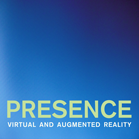 The longest-established academic journal that is devoted to research into teleoperation and virtual environments (3D virtual reality worlds), PRESENCE: Virtual and Augmented Reality is filled with stimulating material about fundamental research into topics such as presence, augmented reality, haptics, user interfaces, and virtual humans, and applications that range from heritage and education to training simulators, healthcare, and entertainment.
The longest-established academic journal that is devoted to research into teleoperation and virtual environments (3D virtual reality worlds), PRESENCE: Virtual and Augmented Reality is filled with stimulating material about fundamental research into topics such as presence, augmented reality, haptics, user interfaces, and virtual humans, and applications that range from heritage and education to training simulators, healthcare, and entertainment.
 Evolutionary Computation is a leading journal in its field. It provides an international forum for facilitating and enhancing the exchange of information among researchers involved in both the theoretical and practical aspects of computational systems drawing their inspiration from nature, with particular emphasis on evolutionary models of computation such as genetic algorithms, evolutionary strategies, classifier systems, evolutionary programming, and genetic programming.
Evolutionary Computation is a leading journal in its field. It provides an international forum for facilitating and enhancing the exchange of information among researchers involved in both the theoretical and practical aspects of computational systems drawing their inspiration from nature, with particular emphasis on evolutionary models of computation such as genetic algorithms, evolutionary strategies, classifier systems, evolutionary programming, and genetic programming.
Neural Computation disseminates important, multidisciplinary research in theory, modeling, computation, and statistics in neuroscience and in the design and construction of neurally inspired information processing systems. This field attracts psychologists, physicists, computer scientists, neuroscientists, and artificial intelligence investigators working on the neural systems underlying perception, emotion, cognition, and behavior, and artificial neural systems that have similar capabilities. Powerful new experimental technologies being developed by the BRAIN Initiative will produce large, complex data sets, and rigorous statistical analysis and theoretical insight will be essential for understanding what these data mean. Timely, short communications, full-length research articles, and reviews focus on advances in the field and cover all aspects of neural computation.
 Computational Linguistics is the longest-running publication devoted exclusively to the computational and mathematical properties of language and the design and analysis of natural language processing systems. This highly regarded quarterly offers university and industry linguists, computational linguists, artificial intelligence and machine learning investigators, cognitive scientists, speech specialists, and philosophers the latest information about the computational aspects of all the facets of research on language.
Computational Linguistics is the longest-running publication devoted exclusively to the computational and mathematical properties of language and the design and analysis of natural language processing systems. This highly regarded quarterly offers university and industry linguists, computational linguists, artificial intelligence and machine learning investigators, cognitive scientists, speech specialists, and philosophers the latest information about the computational aspects of all the facets of research on language.


